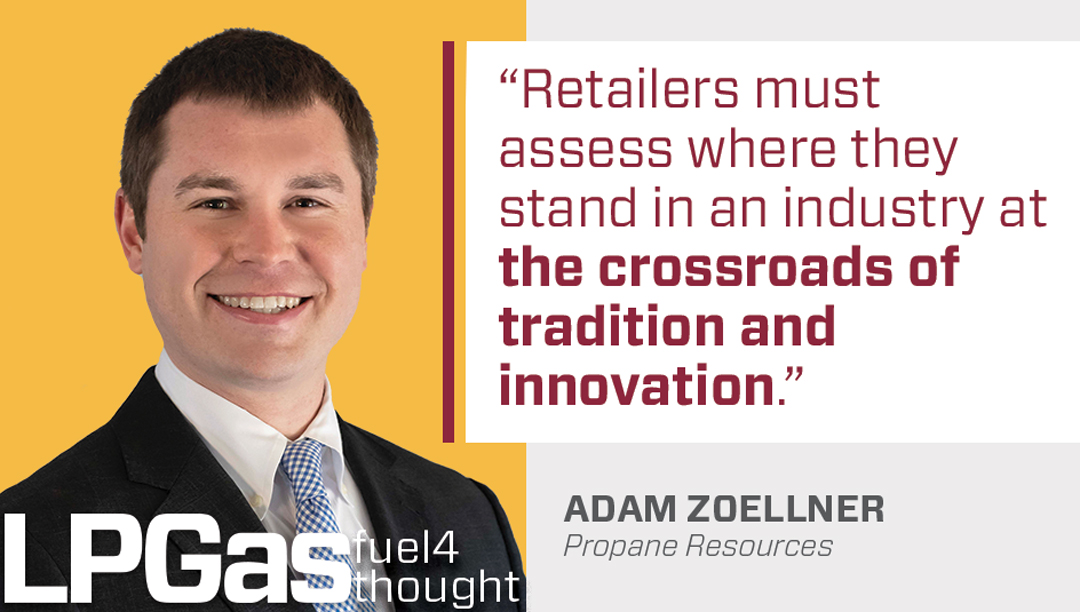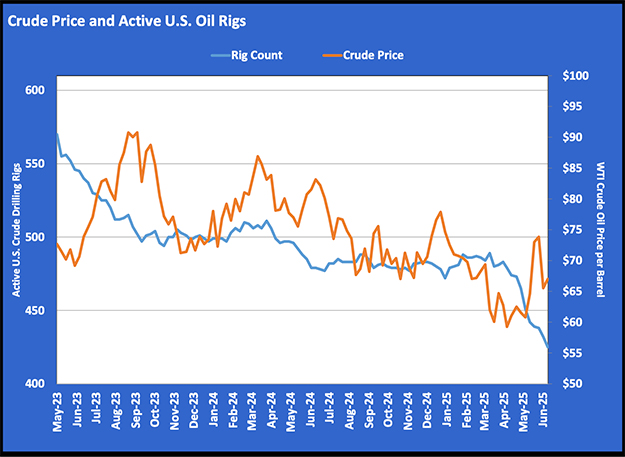In the Know: Adapting to innovation
In the Know is a monthly partnership between LP Gas and Propane Resources. This month, Adam Zoellner reviews the innovation happening in the propane industry heading into 2024.
QUESTION: What’s the current state of the propane industry?
ANSWER:
The retail propane industry stands robust in its traditional role of fueling homes, businesses and agricultural operations.
However, the stability of today’s market does not negate the need for adaptation. The emergence of advanced technology is prompting industry players to evolve or risk becoming obsolete. Successful retailers view these technological advancements not as threats but as opportunities to enhance operational efficiency and customer engagement.
⦁ Automation and scaling operations: Retailers increasingly use technology to automate processes, aiming to scale their back-office operations without replacing human personnel. Sophisticated software solutions enable companies to manage logistics, inventory and customer service efficiently. The objective is clear: Do more with less, and grow the business without proportionally increasing the back-office staff.
⦁ Simplifying customer onboarding: Simplifying the customer onboarding process is crucial in saving time, money and resources. Streamlining these procedures through online platforms can reduce the daily workload on office staff and improve the customer experience, ensuring that new clients can quickly sign up for services and manage their accounts without unnecessary paperwork or delays. As for reaching new customers, retailers are becoming increasingly creative, harnessing the power of digital marketing and social media to expand their market presence and appeal to a broader audience.
⦁ Enhancing the driver’s role: From a driver’s standpoint, innovation includes implementing “call ahead” buttons and texting notifications, informing customers of incoming deliveries. The industry has slowly adopted widespread texting, but the potential benefits are significant. Technologies like tablets in trucks can move drivers away from handwritten tickets to more efficient digital processes. Today’s GPS units and telematics allow managers to route drivers more efficiently. Such tools enhance the customer experience and empower drivers to manage more deliveries, contributing to the bottom line.
Leveraging technology makes retailers’ work more efficient and, literally, allows them to cover more ground regarding gallons delivered and stops made.
⦁ Electrification and the political environment: The push toward electrification continues to be a significant narrative in the media, placing pressure on the propane industry. Retailers must adapt by promoting the “clean propane narrative,” emphasizing propane’s lower carbon intensity than grid electricity in many states. Retailers can combat the electrification narrative by educating customers and encouraging them to advocate for cleaner energy options like propane.

Challenges for retailers
In today’s environment, retailers confront a multitude of challenges:
- Labor shortages: Driver and labor shortages remain a critical issue.
- Barriers to entry: Increasing barriers make it challenging to start new operations.
- Wage inflation: Wage increases are necessary to attract and retain quality staff but come at a cost.
- Economic conditions: Higher interest rates affect the ability to invest in new assets, exacerbated by the prediction that rates might stay elevated until at least late 2024.
- Diversifying revenues: A shift from reliance on heating degree-days to developing fee structures and additional income streams is needed.
- Technology adoption: An “old” industry must overcome generational technological knowledge and acceptance gaps.
Positive trends for retailers
Despite these hurdles, several positive trends in the industry provide a counterbalance:
- Supply chain improvement: Lead times have reduced, and the supply chain is stabilizing.
- Favorable economics: Propane costs remain low, while margins are high and supply is steady.
- Industry consolidation: Interest rates and the political environment have not slowed down the acquisition landscape in our industry.
- Technological availability: Advanced enterprise resource planning systems and other technologies can provide significant benefits – if retailers are willing to embrace them.
Retailers must assess where they stand in an industry at the crossroads of tradition and innovation. The question is not whether to modernize but how swiftly and effectively one can integrate technological advancements into operations. Local independents, in particular, have much to gain by adopting ideas and technology to help them compete with national chains.
As the industry navigates through technological change, economic pressures and political narratives, the key to longevity lies in agility and the willingness to embrace innovation. The retailers that will thrive are those who see technology as an enabler, not just a necessity, and use it to amplify their strengths and address their weaknesses. The path forward is clear – modernization is not an option but a necessity for survival and success in the retail propane industry.
Adam Zoellner is a mergers and acquisitions manager at Propane Resources. He can be reached at adam@propaneresources.com or 913-329-2735.
















